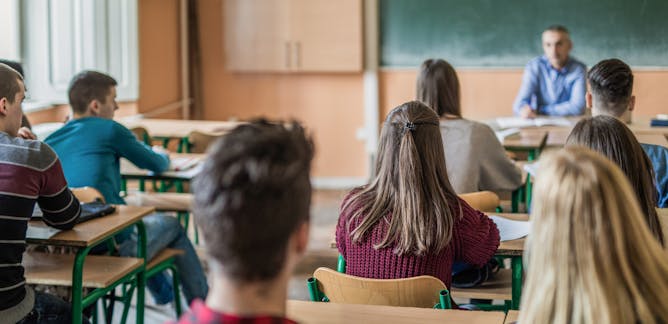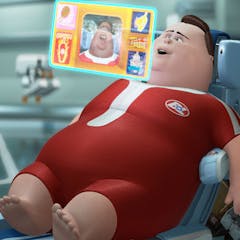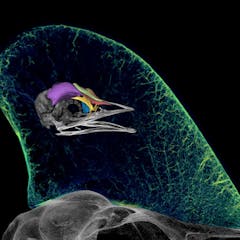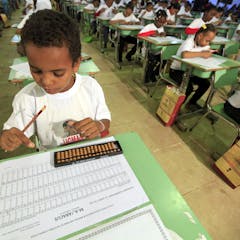
Articles on Critical thinking skills
Displaying 1 - 20 of 21 articles

Key education policy decisions in the early 2000s have not produced the desired results. But broad bipartisan agreement is now needed to give children and teachers the greatest chance of success.

AI has the potential to diminish the human experience in several ways. One particularly concerning threat is to the ability to make thoughtful decisions.

It is crucial to cultivate teachers who are socially aware and critical, especially in today’s unequal society

You can still tell the truth without ruining everyone’s Easter. Here are some tips.

Solving mathematical equations is only part of the job. Students should be spending more time thinking about the human dimensions of the problems they are trying to solve.

Critical thinking means seeking out new information – especially facts that might run contrary to what you believe – and being willing to change your mind. And it’s a teachable skill.

Scientists have been using art to illuminate and share their research with the public for centuries. And art could be one way to bolster K-12 science education and scientific literacy in the public.

Tolerating inquiry is essential even if there are such things as questions no one should ask.

Before pilot Charles Taylor and company mysteriously vanished in the Bermuda Triangle in 1945, Taylor had to be rescued from the Pacific Ocean twice.

Critical thinking is being taught successfully in schools and universities around the world. Studies show it improves students’ thinking ability and even their standardised test scores.

My year of buying almost nothing saved me thousands of dollars – but also taught me valuable lessons as a teacher, including about the benefits of failure.

The same skills and talents that enable chess players to dominate the board will also serve aspiring lawyers well in the courtroom, a law scholar argues.

A report from RBC Royal Bank reaffirms what thought leaders keep insisting – there will be more and more demand for a liberal arts education in our increasingly digital world.

To assess problem-solving, creative and critical thinking skills on NAPLAN would fit with broader movements in education internationally, but there are some questions to address first.

Education systems around the world are increasingly recognising the value of local approaches to thinking, learning and being.

The establishment of science centres for young people is one of many initiatives hoped to fix South Africa’s education system.

A report has discovered that while students born after 1980 have good digital skills, they need to think more critically about what they read online.

It’s not what you think you know, but how you can justify your knowledge that is most important.

We’re living in a time of rapid transformation in terms of what’s required for a country’s workforce. Design thinking is one way to prepare graduates for these changing times.

Maths occupies an eminent place in global schooling assessment criteria not just because of its content, but for the skills that are taught and developed alongside it.
